Case Study
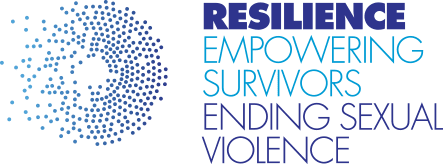
Please note, the contents of this case study can be triggering to some readers
Find Out…
How the organization formerly known as Rape Victim Advocates rebranded to become Resilience, transformed its messaging, and grew its impact.
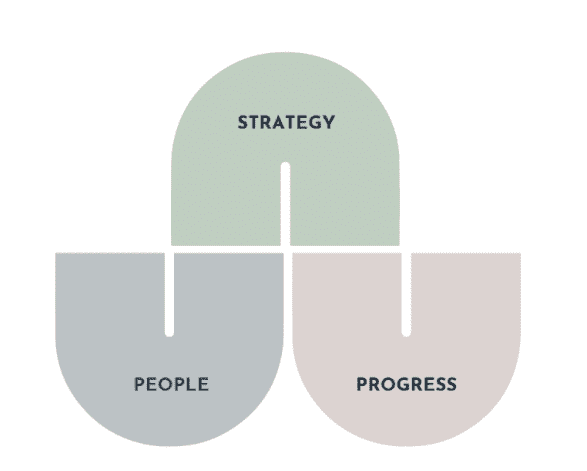
The Challenge
As a 44-year-old nonprofit organization, Rape Victim Advocates (RVA) was at crossroads when they engaged Prosper Strategies. Their name and brand no longer aligned with the expanding scope of their mission.
In fact, every word in their name had become problematic:
- “Rape” limited their scope of work as they now focus on all types of sexual violence. It also limited their ability to bring programming to schools and workplaces that were averse to the term.
- “Victim” was a harmful and disempowering label for the people the organization serves, who they had long ago taken to referring to as “survivors” rather than “victims.”
- “Advocates” did not adequately explain the role that the organization’s staff and volunteers play in the lives of the survivors they serve.
Despite these challenges, many of their stakeholders felt personally tied to their existing identity and Rape Victim Advocates had built up significant brand awareness over its long history. Additionally, many of the organization’s staff members and volunteers are themselves survivors, which made them even more likely to feel personally invested in the current and future identity of the organization.
Changing their name was going to require a strategic process built around gathering insights and creating alignment among stakeholders, so we used our Nonprofit Impact System™ guided by our Shared Power Strategy™ philosophy to navigate this complex rebrand.
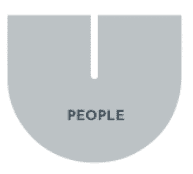
People
Our Shared Power Strategy™ philosophy puts people at the center of the strategic process, which is especially critical for gathering the appropriate insights and managing the changes that come along with a rebrand.
To ensure we had stakeholder input throughout rebranding RVA, we began our work together with the formation of a primary planning committee, made up of the organization’s leadership. We also brought together a stakeholder committee which included staff, volunteers, board members, survivors and donors. We structured our process so that we gathered inputs from these groups at strategic checkpoints during the new brand’s development. Additionally, we analyzed a donor survey and interviewed supporters, volunteers and survivors to inform our rebranding work.
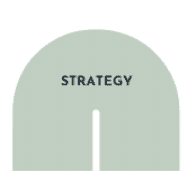
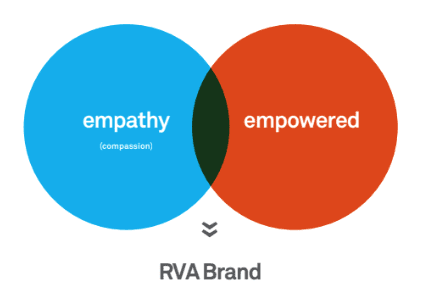
Strategy
Supported by stakeholder insights gathered through our People phase, we moved into the Strategy phase of our work, which began with an organization assessment and an ecosystem assessment.
In the organization assessment, we reviewed RVA’s strategic plan, existing marketing and communications materials and media coverage. We also interviewed leadership, board members and staff.
In the ecosystem assessment, we conducted a marketing and messaging audit of four other organizations that provide survivors with support, as well as those that provide corporate and institutional training, and explored how RVA’s marketing and messaging compared to theirs. We also conducted a topical media audit focused on local and national coverage of sexual violence.
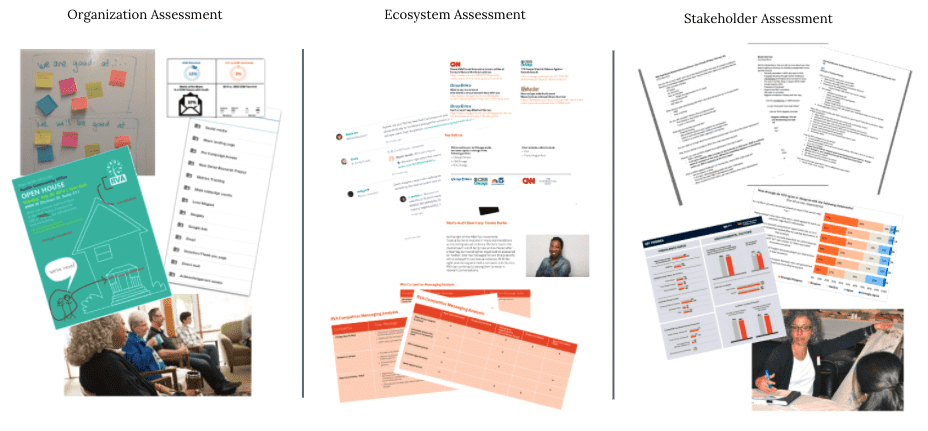
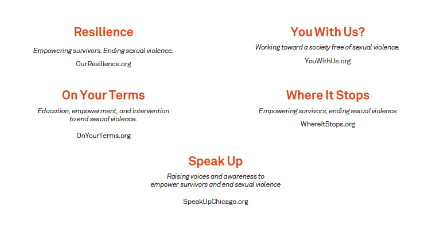
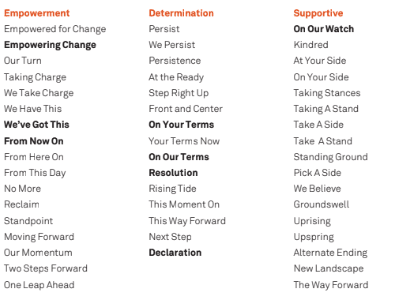
This led us to uncover a few key insights that guided the rest of the rebranding process:
- RVA’s goal to expand its mission was significantly limited by its current name and brand identity
- RVA was differentiated from the ecosystem by its exclusive focus on survivors of sexual assault and 24-7 end-to-end support
- Stakeholders were drawn to the ideas of empathy and empowerment
With our stakeholder insights and research in hand, we transitioned into brand development. We crafted a reason for being statement to capture RVA’s unique impact, along with new messaging. Then, we moved on to naming.
We started by developing a list of more than 100 names, organized by thematic category. After holding a meeting with the primary planning committee to review the long list, it was clear, in addition to empathy and empowerment, they were most drawn to the thematic ideas of determination and solidarity. The primary planning committee narrowed the list down to the top five names, and ultimately voted on the name Resilience and the tagline, “Empowering Survivors. Ending Sexual Violence.”
Once the new name was approved, we moved on to working with the primary planning committee to develop a new visual identity for the organization.
RVA was now ready to become Resilience.
We developed a brand rollout plan that identified how to announce the new brand to the organization’s most important stakeholders and make sure it was as well-received as possible. Resilience needed to explain that while their mission wasn’t changing, their name and visual identity were being updated to keep pace with their evolved scope of services and impact.
Additionally, since thought leadership positioning was also an important goal for Resilience, and since the announcement of a new brand provides opportunities to connect with reporters, we supported the organization in creating and executing a brand rollout media strategy.
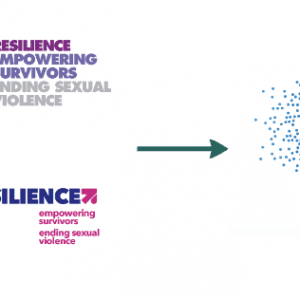
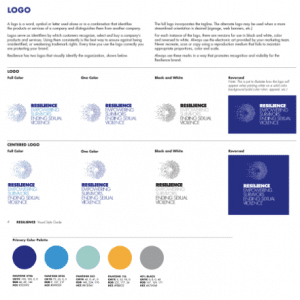

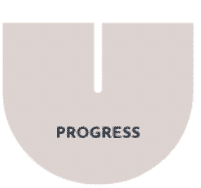
Progress
Finally, we helped Resilience put systems and processes in place for managing their new brand, including the creation of a brand style guide. We also developed a dashboard for measuring its reception, which included metrics like donor retention and hospital retention.
In preparation for the announcement of Resilience, we also developed a new website for the organization, along with collateral, and developed processes for updating those materials internally. To ensure everyone at the organization was prepared to talk about the rebrand and use the new messaging, we also held two messaging and media training sessions with the organization’s staff.
Results
Resilience announced its new brand at its gala in 2018 to a very positive reception and continues to see growth as a result of the broadened scope of work for which their new brand allows. The organization’s total operating budget grew 29% in the year following the rebrand, and foundation grants grew 119%.